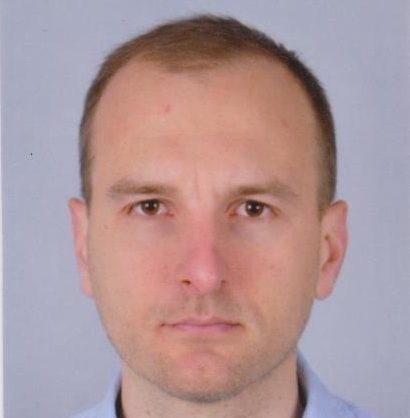S&P Global Offerings
Featured Topics
Featured Products
Events
S&P Global Offerings
Featured Topics
Featured Products
Events
S&P Global Offerings
Featured Topics
Featured Products
Events
Solutions
Capabilities
Delivery Platforms
News & Research
Our Methodology
Methodology & Participation
Reference Tools
Featured Events
S&P Global
S&P Global Offerings
S&P Global
Research & Insights
Solutions
Capabilities
Delivery Platforms
News & Research
Our Methodology
Methodology & Participation
Reference Tools
Featured Events
S&P Global
S&P Global Offerings
S&P Global
Research & Insights
S&P Global Offerings
Featured Topics
Featured Products
Events
Support
03 Mar 2022 | 15:32 UTC
Highlights
Palladium mostly transported by passenger planes
Iridium prices starting to increase
The palladium spot price jumped over 5% to around $2,810/oz March 3, after the announcement that Nornickel's global depositary receipts were suspended from trading on the London Stock Exchange.
"Such news does not improve the situation and fuels fears of a total loss of Russian palladium supply," Umicore precious metals trader Sven Bandilla said in a note March 3.
"Furthermore, speculation and/or fear of getting enough palladium left plays a role in volatility, of course," Bandilla said.
The palladium spot price, as of 1515 GMT March 3, stood at $2,761/oz.
Nornickel is the world's largest producer of palladium and high-grade nickel and a major producer of platinum and copper. Russia produced around 2.5 million oz of palladium in 2021, around 45% of world production. Russia is the largest producer of palladium, followed by South Africa.
Since the beginning of the week, the palladium spot price has been on the ascendency.
SBG Securities lead PGM analyst Adrian Hammond told S&P Global Commodity Insights that the price movement was speculative.
This was echoed by Impala Platinum's group executive for corporate relations, Johan Theron.
"We have not yet seen any specific physical constraints at play -- it is also still early days with significant processing inventories at play in the normal business cycle available to cover developing pressure points," Theron told S&P Global.
UK-based minor metals trading company Lipmann Walton & Co.'s trader Karolina Jackiewicz told S&P Global: "At the moment it's all sentiment, immediate reaction to what is going on in Ukraine, as a large proportion of palladium produced annually comes from Russia."
Another factor likely playing a part are the logistical constraints.
Metals, such as platinum, palladium and rhodium are typically delivered using air freight. The US, Canada and the EU have closed their airspace to Russian aircraft amid the country's military invasion of Ukraine.
"To continue the series of factors that have an influence on the palladium price, one could also mention the logistical problem: palladium is mostly transported by passenger planes, but many airspaces are closed for Russian planes," Bandilla said.
Sieberana Research managing director, Rene Hochreiter, said it was a logistical problem which was finally being accepted.
"No aircraft, no export/import permits, no bank accounts to pay or get paid by," Hochreiter said, "unless there's sanctions busting, palladium prices will stay high."
However, UK brokerage Liberum mining analyst Ben Davis told S&P Global: "I would be surprised if it was logistical issue already, I suspect self-sanctioning is more prevalent than we thought it would be, particularly from China."
Liberum's analyst said he was not sure how the market would cope if Russia was truly out for platinum group metals.
"But certainly not enough countries to take the volumes if they are looking to avoid US secondary sanctions," Davis said, adding that "Norilsk share price would imply that they can't sell, that's for sure."
Heraeus Precious Metals global head of trading, Henrik Marx, told S&P Global: "Overall, I would say there is so much movement in the market with new developments basically on an hourly basis compared with general nervousness in the market which are causing the hikes."
A South African research house said that, while China had started to put restrictions on Russia, most of the autocatalytic manufactures had acquired the metal suggesting palladium stocks were sufficient in the very near term but potentially looking at depletion levels within the next month or two.
Palladium is a key ingredient in gasoline engine auto catalysts, the type most widely use in the US and China, which lower emissions. The auto sector accounts for about 85% of industrial palladium demand.
The research house said South African and Zimbabwean platinum group metal producers stood to benefit the most, with even iridium prices starting to increase.
Iridium is a critical element in several niche products, including temperature resistant crucibles used to grow synthetic crystals for electronics and telecommunications systems, such as 5G, high-performance spark plugs, medical devices and iridium-coated electrodes for navel ballast systems.
Lipmann Walton & Co.'s Jackiewicz said: "Iridium, even though it is not overly reliant on the Russian market — less than 10% of the production — because it is a very small market overall, it is prone to being volatile.
"China is a large market for PGMs and as long as they are not imposing any sanctions on Russia, PGMs produced there can be easily diverted to and consumed within China."
Johnson Matthey said March 3 its iridium base price stood at $4,400/oz, while refiner Engelhard Materials Services' (BASF) base price stood at $4,300/oz.
Gain access to exclusive research, events and more

